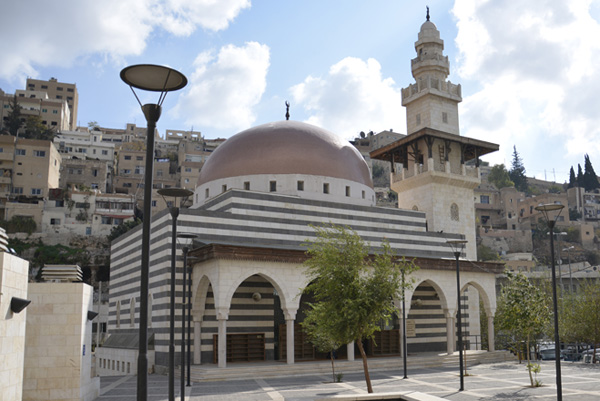AMMAN — Three mosques categorised as large water consumers will be turned into “examples of water efficiency” under a new project to reduce waste of water at mosques, a government official said on Monday.
Rainwater harvesting techniques, recycling of greywater and installing water-saving devices at mosques are the pillars of the project, which seeks to reduce water consumption and cut down on mosques’ water bills, which stand at JD2 million per year, Awqaf Minister Hayel Dawood said.
“Water consumption at certain mosques is very high and can reach up to 20-50 cubic metres per day. In addition, some worshippers leave the tap running after performing ablution; therefore, applying water-efficiency techniques at mosques is imperative,” Dawood told The Jordan Times.
The first phase of the project will be applied at three mosques, most likely in Zarqa Governorate, at a cost of 170,000 euros, Dawood said, noting that the project will be implemented in cooperation with the German Development Cooperation (GIZ) and the West Asia North Africa (WANA) Institute.
“Implementation of the project will start next month and will be completed within three years,” Dawood added.
The ministry, in cooperation with GIZ and WANA, is also seeking to secure funding of 330,000 euros from donors to implement the project at another 10 mosques in different parts of the country, the minister said, highlighting that there are around 5,200 mosques across the Kingdom.
As part of the project, the ministry will also meet with members of committees in charge of caring for the mosques, as well as preachers to introduce them to the project’s idea, its importance and their role in encouraging worshippers to reduce water consumption.
Dawood highlighted that 90 per cent of water generated from mosques is greywater, which easily can be treated and reused for the irrigation of mosque gardens, noting that installing water-saving fixtures will also reduce a minimum of 30 per cent of water consumption.
